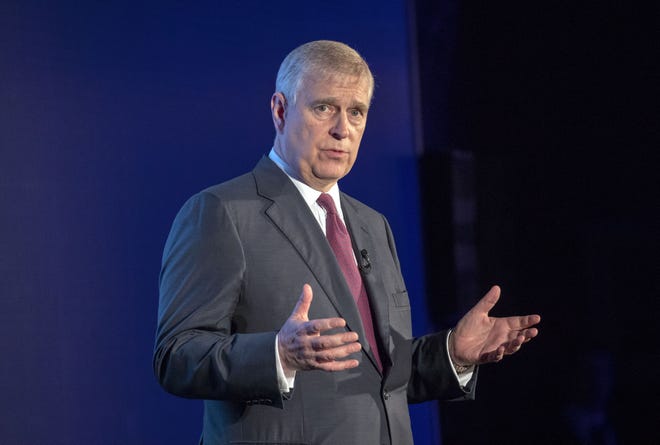Former Rep. Mark Sanford of South Carolina on Sunday became the third Republican to challenge President Donald Trump in a primary.
“Essentially no one ‘leading’ in Washington is leading, or even speaking of, our financial predicament,” Sanford tweeted Sunday when announcing his bid. “We are living in a government spending and financial la-la land. Which brings me to the larger question of what I, or any of us, can do about it?”
For Sanford, the answer is to challenge Trump, who quickly dismissed Sanford as a threat. It’s the latest twist in Sanford’s turbulent political career. Sanford represented South Carolina in Congress during two separate stints and also served as the state’s governor from 2003 to 2011.
In 2009, when Sanford was a popular governor and a rising star in Republican politics, he briefly disappeared. He was, his staff initially said, hiking the Appalachian Trail. When he reemerged, the then-married governor made international headlines when he acknowledged he was actually visiting a paramour in Argentina.
Sanford refused to resign. An effort to impeach him fizzled and Sanford served out his gubernatorial term, but his political career was seemingly in tatters. He then ran for — and won — his old congressional seat in 2013, completing his political comeback.
But Sanford became crosswise with President Donald Trump, regularly jabbing him for what Sanford considered bad behavior.
Trump responded by last year endorsing Katie Arrington, Sanford’s Republican primary opponent in the 2018 congressional race, on the day of the primary election.
“Mark Sanford has been very unhelpful to me in my campaign to MAGA,” Trump tweeted. “He is MIA and nothing but trouble. He is better off in Argentina. I fully endorse Katie Arrington for Congress in SC, a state I love. She is tough on crime and will continue our fight to lower taxes. VOTE Katie!”
Arrington won the primary but lost in the general election; Sanford left the U.S. House in January.
Sanford joins Joe Walsh, another former congressman, and Bill Weld, another former governor, as resource-challenged Republicans attempting to derail the president’s march to the 2020 Republican nomination.
Here’s what you should know about Sanford’s political and personal finances:
- Sanford begins his presidential campaign with a nest egg: His federal congressional committee still had more than $1.35 million cash on hand as of June 30, according to a filing with the Federal Election Commission. Federal law allows Sanford to transfer his surplus congressional campaign money to his presidential campaign account. Other presidential candidates, including Sens. Elizabeth Warren, D-Mass., Bernie Sanders, I-Vt. and Amy Klobuchar, D-Minn., have this year made such transfers.
- In 2009, the South Carolina State Ethics Commission charged Sanford with 37 ethics violations. Authorities alleged the then-South Carolina governor improperly used state resources and campaign funds for personal travel and flew first or business class on state business when he should have booked more economical tickets. Sanford denied wrongdoing but agreed to settle the charges by paying a $74,000 fine — $2,000 for each charge. Sanford also avoided criminal charges in the matter.
- From 2008 to 2009, Sanford chaired the Republican Governors Association, the primary national body that helps elect GOP governors — and that typically raises tens of millions of dollars annually toward that goal. But Sanford resigned from the post in 2009 after acknowledging his affair.

- In 2011, during his final year as South Carolina governor, Sanford reported accepting several dozen small gifts, including University of South Carolina football tickets, books, pies, a “photo diary” and lip gloss, according to a South Carolina State Ethics Commission disclosure.
- Sanford defeated Elizabeth Colbert Busch — sister of comedian and “The Late Show with Stephen Colbert” host Stephen Colbert — to win the 2013 special congressional election that returned him to elected office. Sanford won despite raising less money ($1.69 million) than Colbert Busch ($2.15 million).
- During his congressional career, people and political action committees associated with the real estate or securities and investments industries gave Sanford’s campaign more money than those associated with any other industry, according to the Center for Responsive Politics.
- Among PACs, those of aerospace giant Boeing, rail freight company CSX Corp., the National Association of Realtors and Blessey Marine Service ranked among the most generous donors to Sanford’s congressional campaigns.
- When it comes to real estate holdings, Sanford is no Trump. Nevertheless, Sanford has parked seven-figure wealth in rental properties and other investments. His estimated holdings, according to his 2019 U.S. House of Representatives personal financial disclosure, are worth at least $3.02 million and as much as $9.42 million. (Per federal rules, such disclosures are reported in broad value ranges and don’t include certain asset categories, such as one’s personal residence.)
- Sanford has one reported debt, according to his most recent personal financial disclosure: a mortgage valued somewhere between $250,001 and $500,000.



